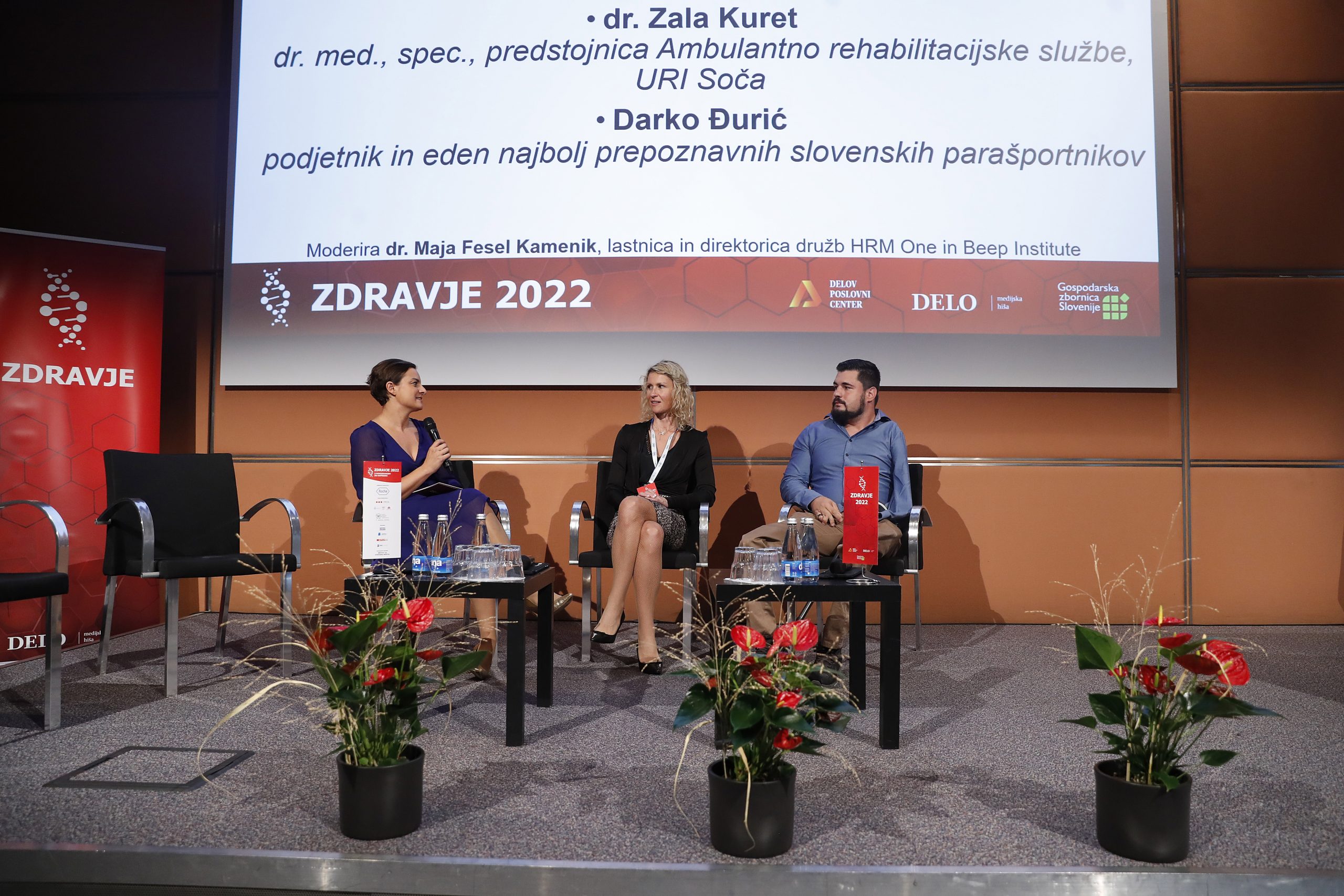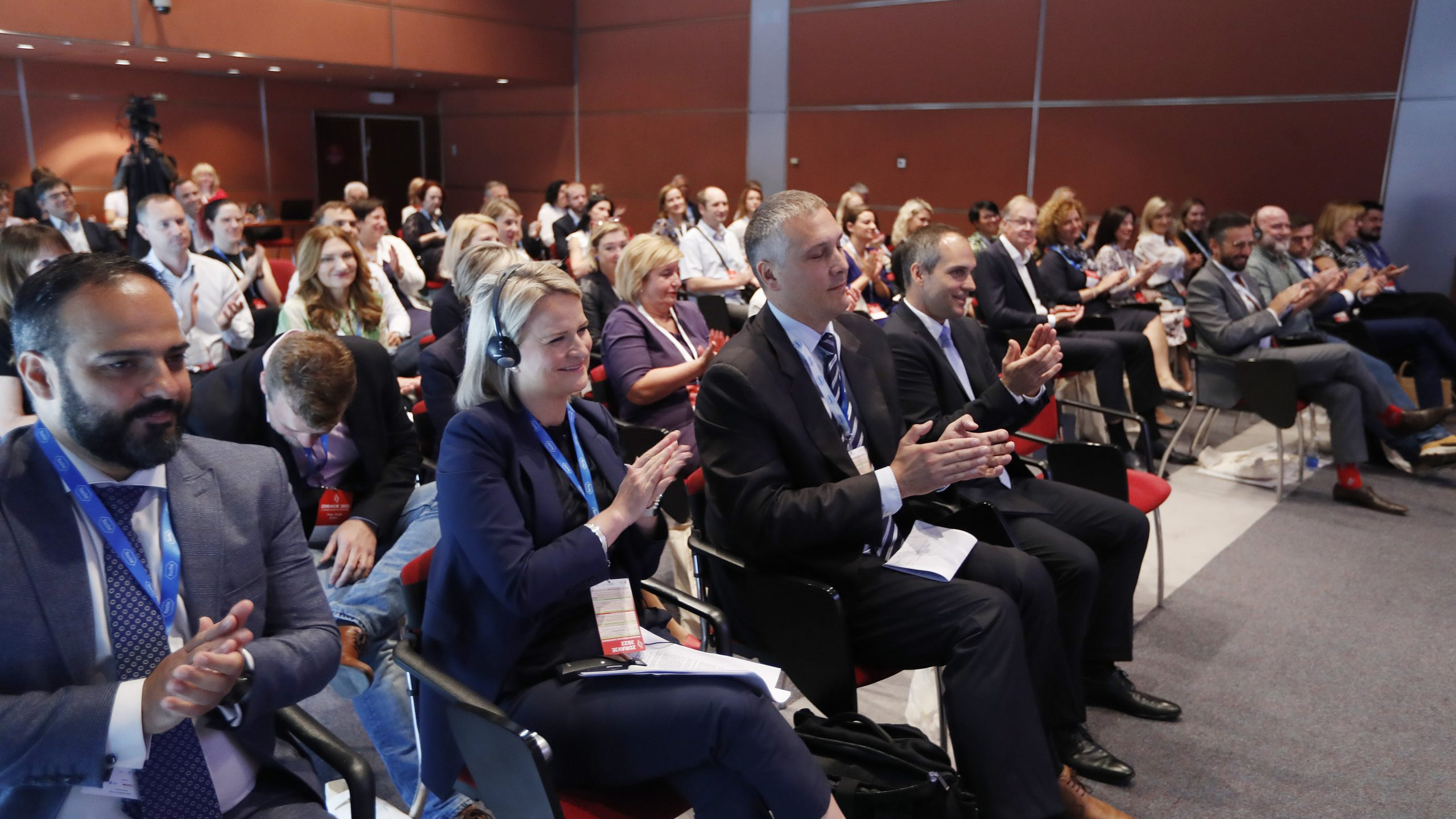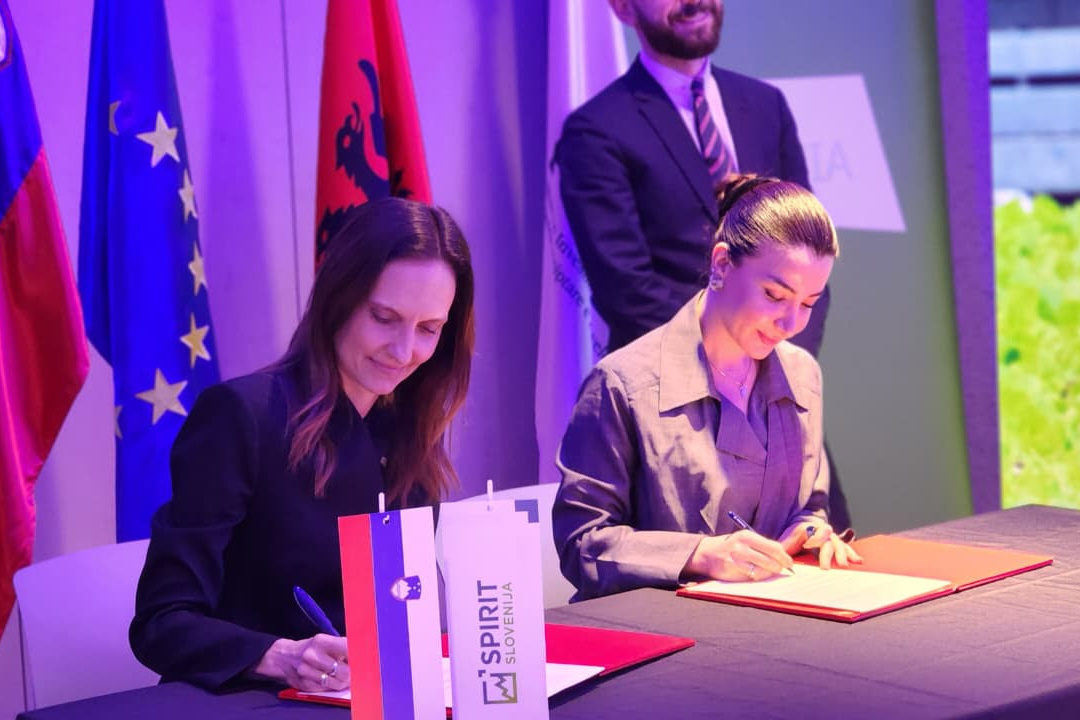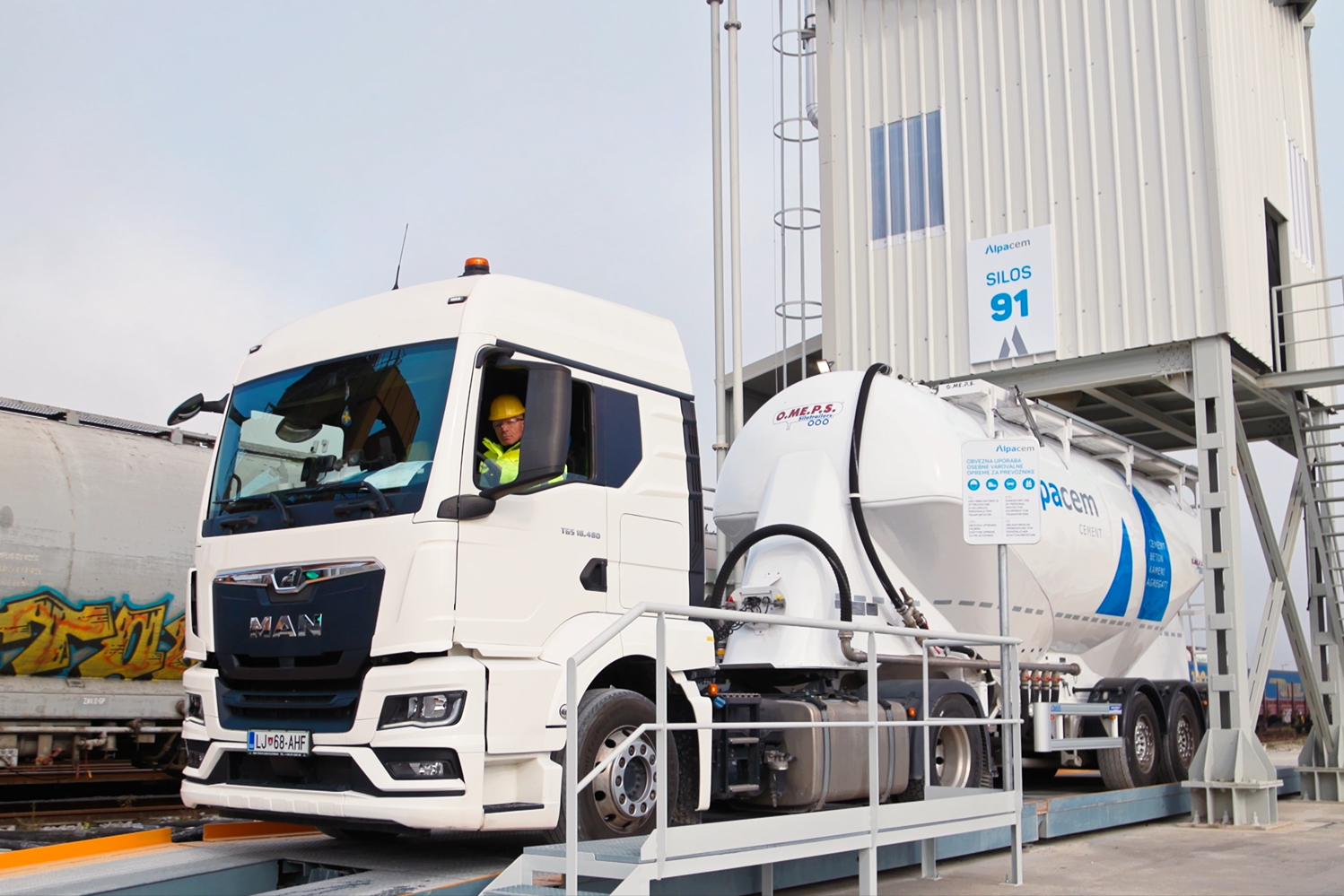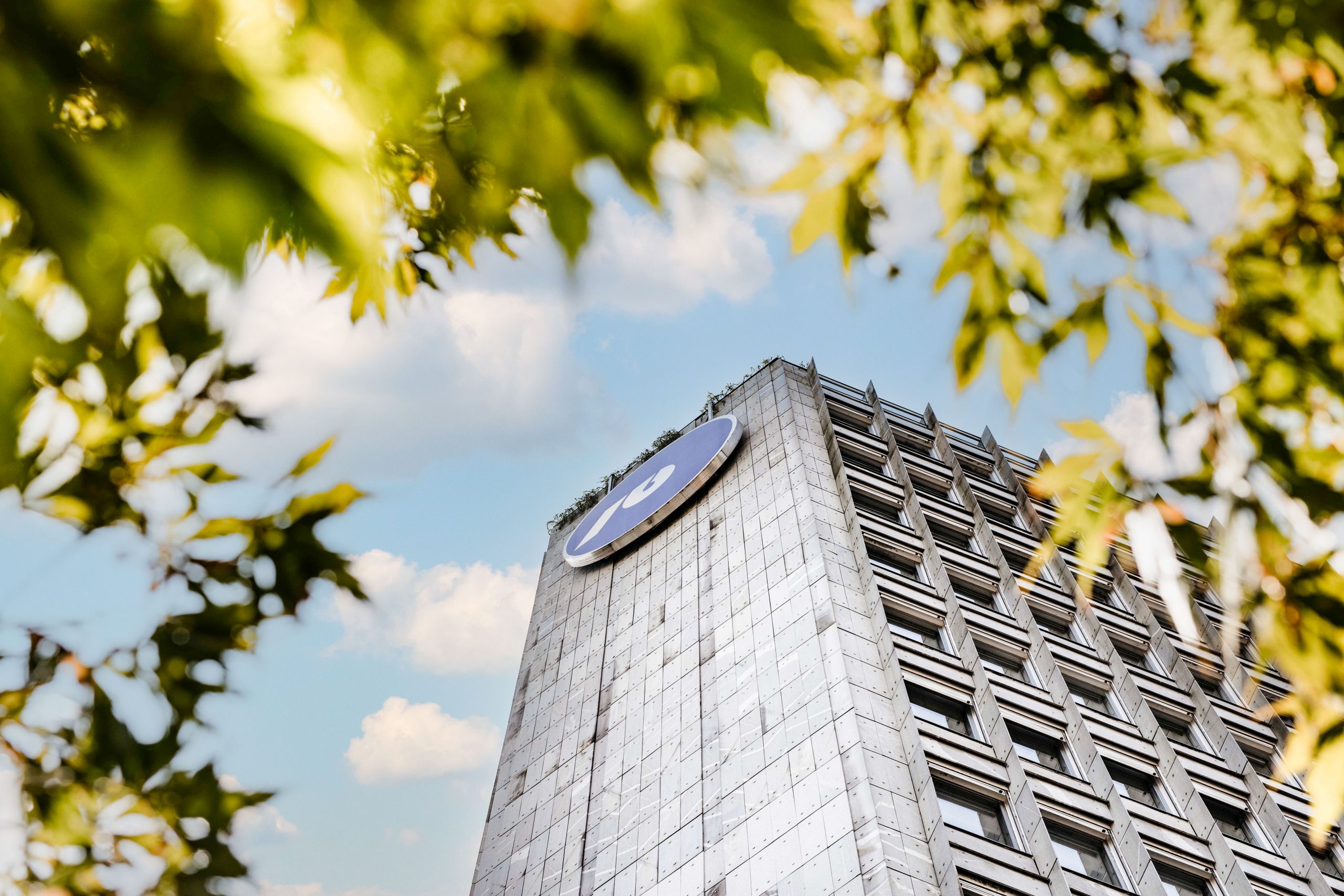HEALTH business conference 2022
Adriatic team
Ljubljana 2022 – Delo's Health business conference 2022, ‘By Connecting to Progress’, focused on the functioning of Slovenian healthcare and its basic building blocks, namely, system and subsystem foundations, employees and technology. The conference brought together all the key players in Slovenian healthcare in Ljubljana, and the attendees and speakers compromised representatives from the medical profession and the public health fund, contractors, private insurance companies, as well as, senior representatives from the pharmaceutical and IT sectors.
The conference was opened with an introductory speech by Andrej Kren (Media House Delo), Igor Zorko (Chamber of Commerce and Industry and President of the Association for Informatics and Telecommunications) and Tine Kračun (Institute for Strategic Solutions). The opening address was given by Tadej Ostrc, M.Sc. from the Ministry of Health of the Republic of Slovenia.
The keynote speaker of the conference was Mark Boyd from the Open Data Institute, who illustrated the steps needed for providing more efficient healthcare. According to Mark Boyd, improving the patient’s journey or access to a doctor and strengthening innovation are both very important.
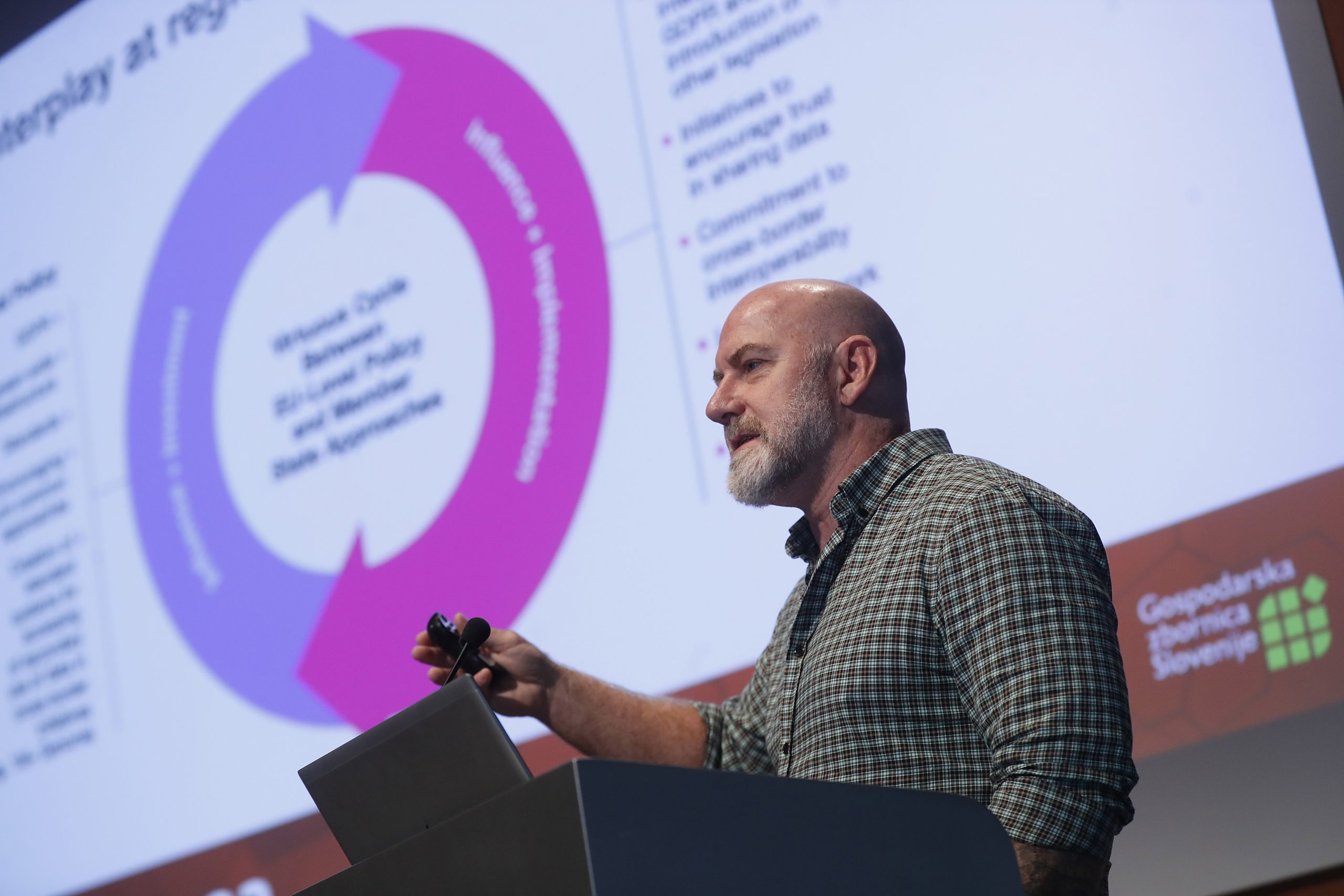
The formula for a successful healthcare system was discussed by Dr Tatjana Mlakar, Dr Bojana Beović, Dr Davorina Petek and Eva McLellan.
Dr. Tatjana Mlakar (ZZZS) is certain that the Slovenian healthcare system is based on a very good model, however, it has not been adapted to the rapidly changing circumstances of modern life. She sees opportunities for improving waiting times and greater efficiency in the functioning of subsystems, with each subsystem having specific responsibilities and autonomy.
Dr. Bojana Beović (Medical Chamber of Slovenia) estimates that the Slovenian healthcare system achieves similar results to stronger and larger healthcare systems in Europe. However, she believes that changes are necessary to keep up with the rapidly changing circumstances in society today. ‘On one hand, we have an ageing population, and on the other hand, we have new technology that residents and patients want to use to maintain their health.’, she said.
Dr. Davorina Petek (ZZ Zdravje Ljubljana and Kirurgija Bitenc) highlighted the problem of the shortage of family doctors, which is a European problem, not unique to Slovenia. The multi-disciplinary treatment of patients can be improved by using other health professionals to take over certain treatments instead of using only doctors. For her, the most important factor is that every patient can have access to a primary level of healthcare.
Eva McLellan (Roche Slovenia) says that the Slovenian system has many positive similarities with healthcare systems in Belgium, Canada and Switzerland. She also rates the Slovenian healthcare system as good. She also points out that primary-level care is an example of the standard model used in Central Europe and one on which we should build. She also reiterates that Slovenia’s main advantage is its small size, which allows for controllability and opportunities for improvement.
The moderator of the round table was Petra Juvančič (Management Association).
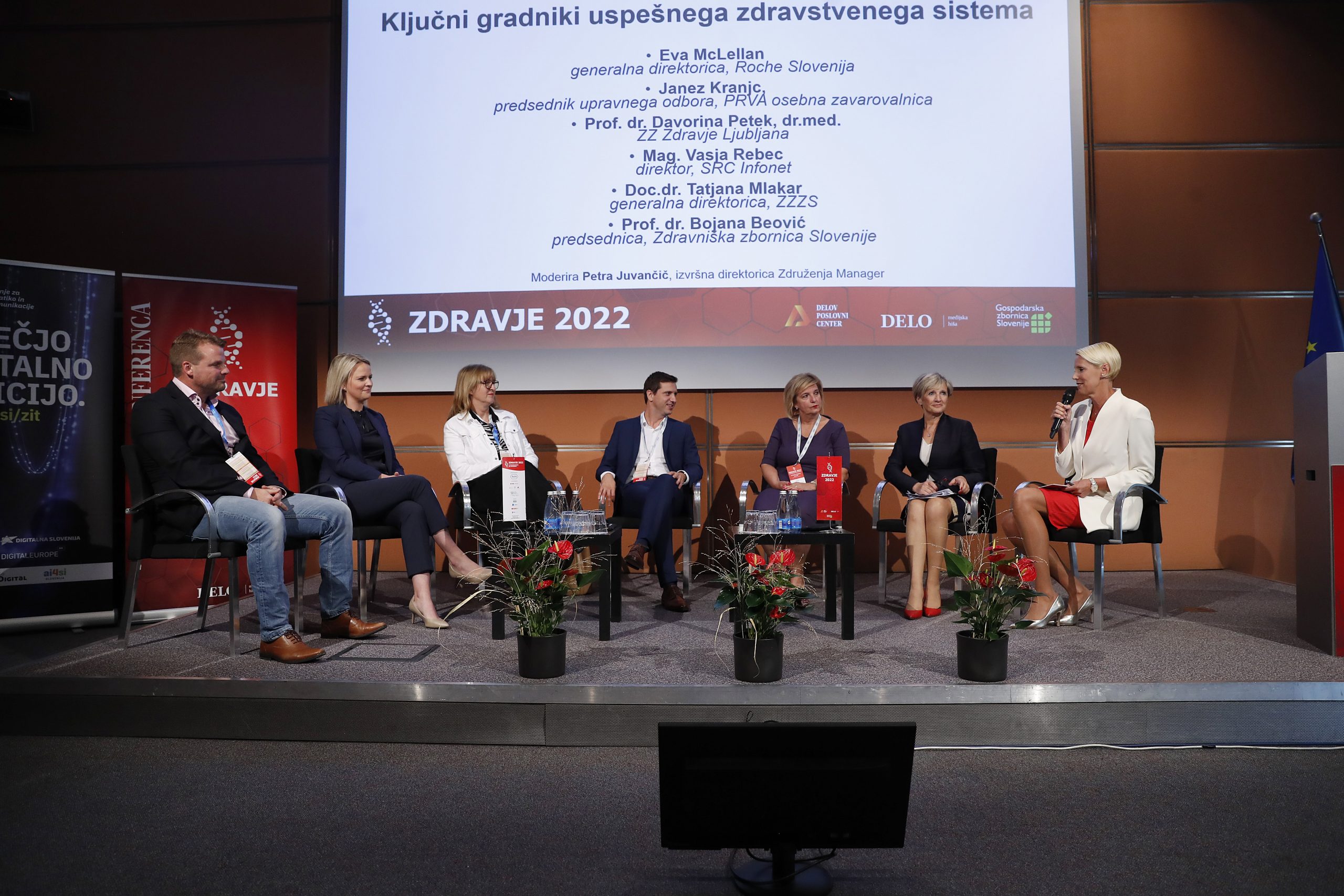
Milan Obradović, Tomaž Gornik, Milica Gregorič Kramberger and Urška Močnik spoke about recent breakthroughs in healthcare.
Milan Obradović (Roche Slovenia) presented the example of the use of advanced diagnostics for lung cancer, which is one of the main causes of mortality in Slovenia. In the majority of cases, the disease is only diagnosed at the irreversible fourth stage. The main reason for that is the late diagnosis, and the solution is in the use of early diagnostics and enhanced accessibility for patients.
Tomaž Gornik (Better) explained how they established a digital data access system for all healthcare stakeholders in the UK, seven months ago. The benefit of the system is that the data is centralised, thereby enabling everyone to have access to the same data at the same time. He also said that due to its small size, Slovenia has a great advantage, as it can introduce and implement innovations quickly that can improve the healthcare system. Lack of money has always been a problem up until now, however, now Slovenia has access to European funds, which is proving a great benefit.
Milica Gregorič Kramberger (UKC Ljubljana) said that we need to build up good and effective cooperation, help from the local environment and information on which patients should be contacted. We need a holistic approach based on data and cost analysis, which, unfortunately, is not possible now.
Urška Močnik (Idrija Retirement Home) highlighted the infrastructural problem, which manifests itself in the overcrowding of homes for the elderly. She also mentioned the attitude towards care home residents during the epidemic as a major problem. According to Urška Močnik, the standard of single rooms in retirement homes should be the same in Slovenia as it is in other European countries.
The moderator of the round table was Barbara Matijašič (Institute for Strategic Solutions).
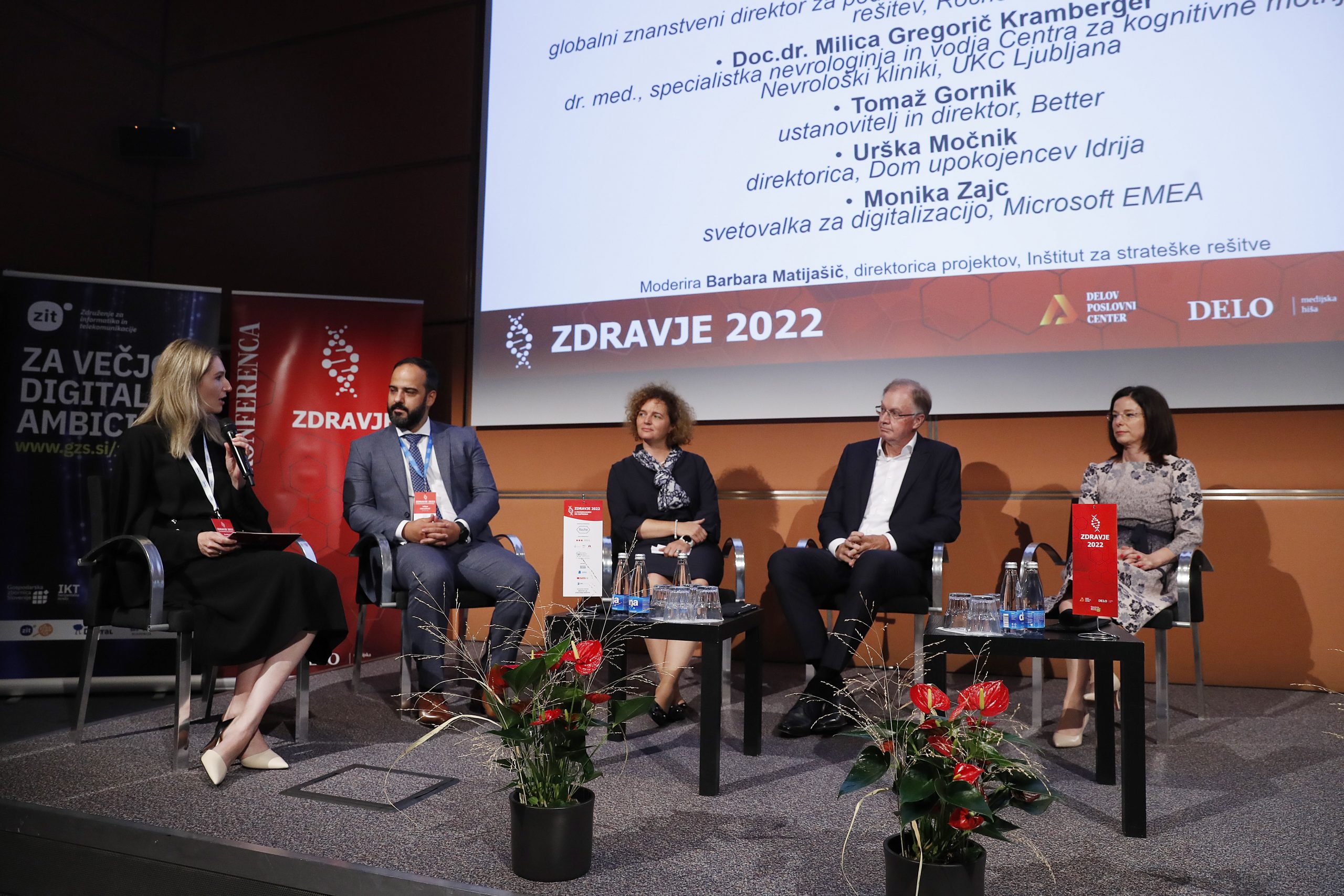
The last part of the conference was devoted to opportunities to promote health in the workplace. Speakers of the last round table were Dr. Maja Fesel Kamenik (HRM One and Beep Institute), Dr. Zala Kuret (URI Soča) and Darko Đurić (para-athlete and entrepreneur). They all agreed that a healthier environment and society can be achieved by setting examples, both in the family and in schools, through adherence to proper nutrition and exercise. Employers also have an important role to play, and they should do more to invest in the health of their employees.
